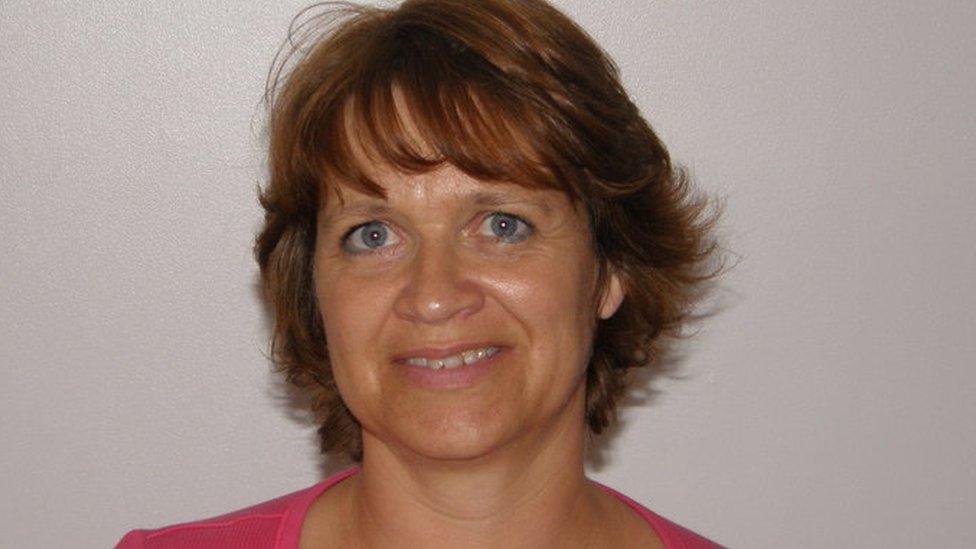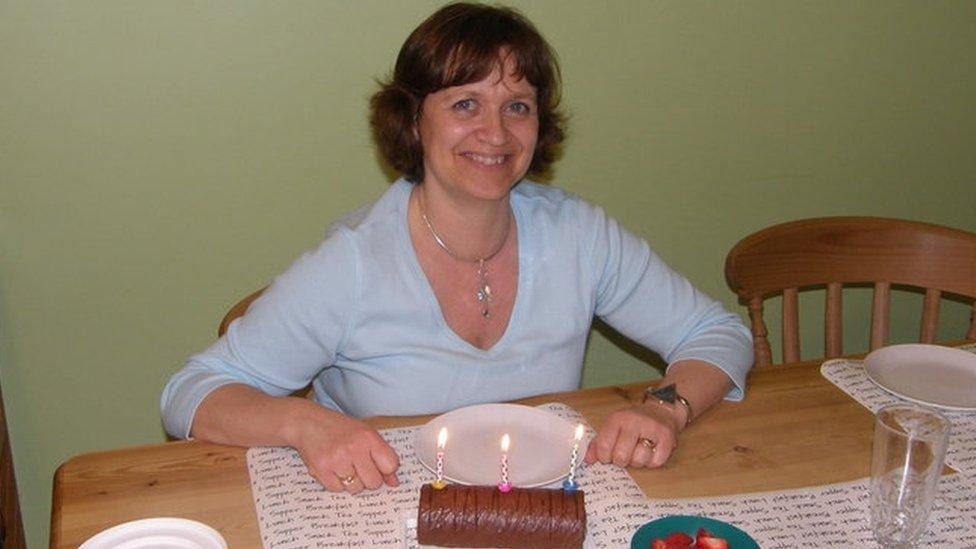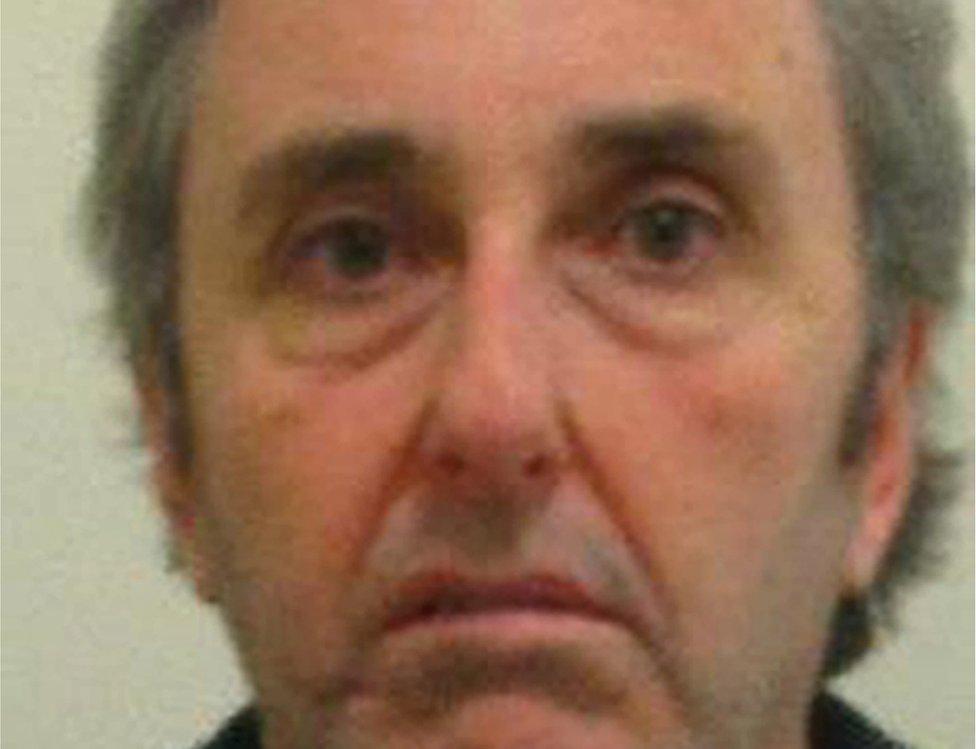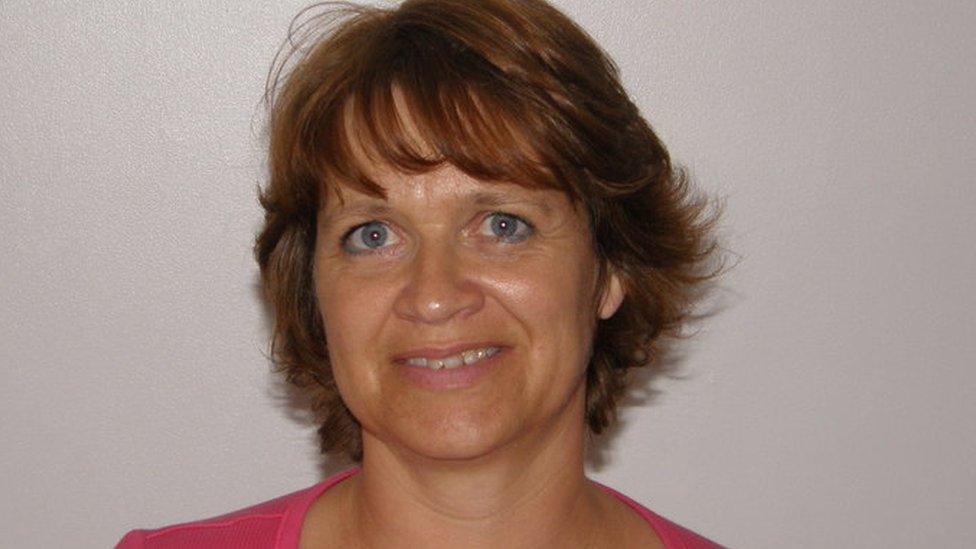Ian Stewart: Murder accused left £96,000 'for sons' futures'
- Published

Diane Stewart died at the home she shared with Ian Stewart and their two sons in the village of Bassingbourn, Cambridgeshire, in 2010
A man accused of murdering his wife has told a court the £96,000 he received after her death was for their sons' futures.
Ian Stewart, 61, has denied killing Diane Stewart, 47, at their home in Bassingbourn, Cambridgeshire in 2010.
The cause of Mrs Stewart's death was recorded at the time as sudden unexplained death in epilepsy (SUDEP).
Her death was investigated after Mr Stewart was convicted of the 2016 murder of his fiancée Helen Bailey.
Mr Stewart told Huntingdon Crown Court that he "didn't need that money, it was for the boys' futures".
The defendant said he bought a red two-seater MG car after his wife's death as "it's what Diane and I had up until [their son] Jamie was born".
"This was the red one we always wanted, it was just a memory."
Asked by the defence what the memories were of, he replied: "Time spent with Diane."

Diane Stewart died at her home in the village of Bassingbourn, Cambridgeshire, in 2010
Earlier on Tuesday, the court heard Mr Stewart went to get help from neighbours before calling 999 when he found his wife collapsed.
Mr Stewart said their son Jamie had his driving test on 25 June while their younger son, Oliver, was at school when he found Mrs Stewart in the garden.
He said he had driven to the supermarket to get French bread and pate to "celebrate" after Jamie's driving test, but returned home when he realised he had forgotten his wallet.
"I saw Diane just crumpled on the floor," he said.
He told the court he tried to get his wife in the recovery position and clear her mouth before placing her on her back for CPR.
Mr Stewart said he did not think Mrs Stewart was breathing and he did "30 compressions and then mouth-to-mouth".
"At the end of it I was exhausted," he said.
Mr Stewart told the court he had not rung 999 as he decided to "try to get help" from a doctor and a nurse who lived opposite.
There was no answer at his neighbours' door, Mr Stewart said, and he returned to his wife.
"Diane was still lying there so I tried CPR again," he said.
Asked how long he did CPR for, Mr Stewart said: "I don't know. I know when I finished that I was worn out.
"That's when I went off again and made the 999 call."

Ian Stewart was jailed in 2017 for the murder of his partner, Helen Bailey
He said he told operators his wife had a fit.
The court heard Mr Stewart "never, ever saw Diane fit" but she did have epilepsy.
Amjad Malik QC, defending, asked Mr Stewart if he was "trying to help Diane".
He answered: "I was trying to save her life, obviously trying to get her to breathe again."
The trial continues.

Find BBC News: East of England on Facebook, external, Instagram, external and Twitter, external. If you have a story suggestion email eastofenglandnews@bbc.co.uk, external
Related topics
- Published31 January 2022

- Published26 January 2022

- Published25 January 2022

- Published21 January 2022

- Published18 January 2022
